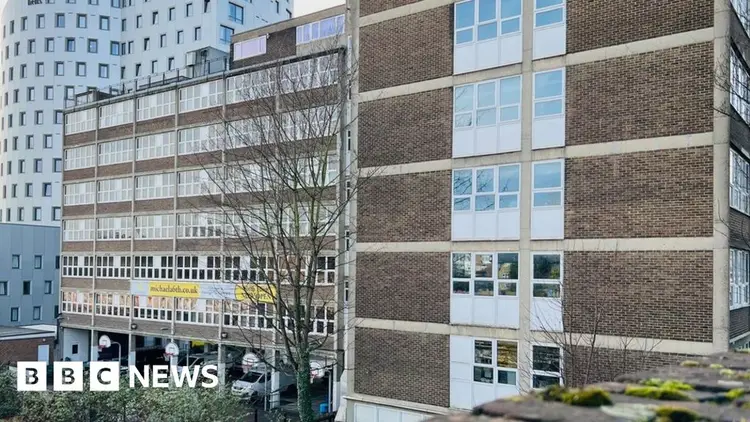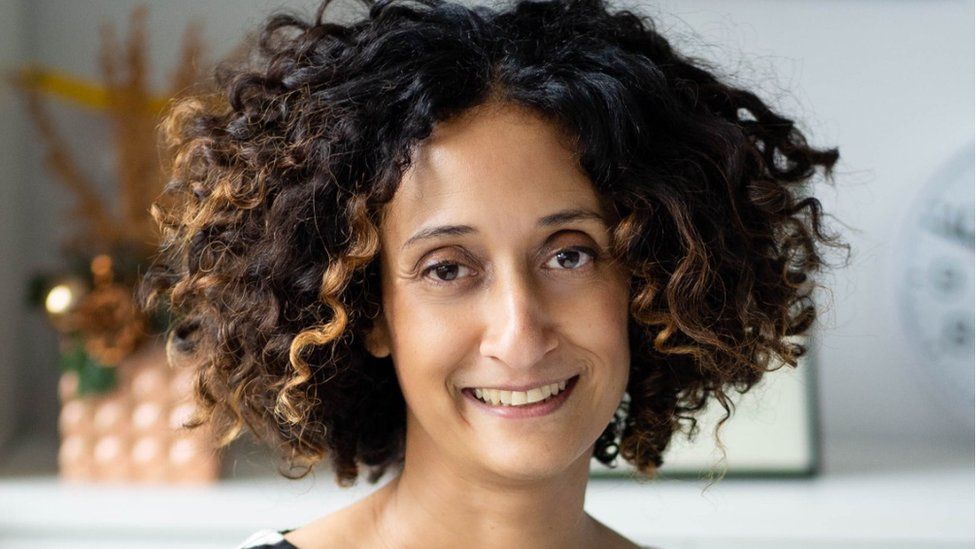Michaela School: Muslim student loses prayer ban challenge

The Cabinet Office has been conducting a review of public appointments, with the aim of improving diversity and inclusivity. The review has found that, while progress has been made in recent years, there is still a significant lack of representation from certain groups, including women, ethnic minorities and people with disabilities. The Cabinet Office is now taking steps to address this issue, including introducing new measures to encourage applications from a wider range of candidates. This is an important step forward in ensuring that public appointments are open to everyone, regardless of their background or circumstances.

In response to the ruling, principal Katharine Birbalsingh declared it a triumph for the entire education system.
Written by Branwen Jeffreys and Jess Warren The educational divide in England is a cause for concern, with a new report showing significant differences in the quality of schooling between the North and South of the country. A recently published study has highlighted the worrying educational disparity across England, revealing that more students in the South attain good grades than their Northern counterparts. These findings have sparked concern that thousands of children in the North are being left behind in terms of their education. The report has prompted calls for the government to address the imbalance in school funding and support for Northern regions, in order to provide all students with equal opportunities to succeed.
A student who practices the Muslim faith at a school located in London attempted to challenge the ban on prayer rituals in the High Court. However, the challenge was unsuccessful.
The girl took Michaela School in Wembley to court, alleging that their policy was discriminatory.
The state secondary school without religious affiliation argued in front of the High Court that performing prayer ceremonies could potentially decrease the feeling of inclusiveness among the students.
Katharine Birbalsingh, the founder and leader of the independent school, expressed that the decision was a triumph for all educational institutions.
Mr. Justice Linden wrote an 83-page decision rejecting the student's claim. He stated that when the student enrolled in the school, she must have known that her religious practices would be limited in some way.
'Freedom To Act Righteously'
The court heard that approximately 50% of the school's total population of roughly 700 students identifies as Muslim.
Pupils are required to follow rigorous regulations which entail paying full attention to educators during lectures and keeping mum while traversing hallways, in addition to complying with dress code guidelines. The institution has received a remarkable assessment from Ofsted.
The High Court was informed that in March of 2023, approximately 30 students started engaging in prayer activities in the schoolyard. They made use of their blazers to kneel on.
Students cannot gather in groups larger than four people, even in the school's outdoor area.
According to court testimony, the school enforced the prohibition around the same period because of worries about an alteration in "culture" which separated religious factions and caused fear among Muslim students.
Michaela is a school that operates independently from the Brent Council, making it a free school.
Schools are not obligated by law to provide their students with a designated time or location for prayer.
This ruling upholds the freedom of individual educational institutions, principals, and school board members to determine what is most beneficial for their particular students.
Certain schools have designated areas for Muslim students to pray, while others do not. However, there is currently no legal requirement for them to do so. This verdict impacts all publicly-funded non-religious schools throughout England.
Ms Birbalsingh, who was previously employed as a social mobility tsar for the government, expressed her belief on X, formerly known as Twitter, that schools ought to have the liberty to make the decisions that they deem are in the best interest for the students they serve.
She stated: "It's not appropriate for a single student and her parent to demand a change in the school's methods just because they have taken a dislike to something at the school.
"If parents are not fond of Michaela's approach, they are not obliged to enroll their kids in our school."
After the decision was made, the scholar released a statement expressing her sadness.
She stated that she doesn't believe it would be difficult for the school to make arrangements for students who want to pray during their lunch break, as outlined in the ruling.
The management of the school is highly efficient and capable of handling various tasks. However, the school has made the decision not to permit students to engage in prayer. The court has ruled in their favor, supporting their alternative course of action.
Despite my defeat, I am confident that I made the right decision by contesting the prohibition. I exerted all of my effort and remained loyal to my faith and personal beliefs.
She stated that she intends to stay in the school and concentrate on her GCSE exams.
She expressed appreciation for the comprehension displayed by her schoolmates who do not belong to the Muslim faith regarding the challenges that impact Muslims.
The source of the image used in this blog post is Getty Images.
Ms Birbalsingh established Michaela Community School ten years ago, with support from the previous education secretary, Michael Gove.
The student filed a legal lawsuit against the Michaela Community Schools Trust, which governs a school in northwest London. She claimed that prohibiting prayer rituals infringed upon her religious freedom rights.
The school claimed that its decision to allow prayers on campus was necessary, as it had received threats of violence and explosives in connection with religious activities.
The student, whose identity cannot be disclosed due to legal restrictions, stated in court that the policy had significantly transformed her perception of "being a Muslim in this nation."
During a court session in January, attorneys representing the student stated that their client asked for a "minor" favor of being permitted to pray for approximately five minutes during lunch breaks on days when their religious customs mandated it, excluding classroom hours.
Sarah Hannett KC spoke on behalf of the student in court and argued that the school policy unfairly targeted Muslim students. She explained that the policy discriminated against Muslim students specifically because their prayers involved external actions rather than just internal thoughts.
Unlike many other religions, Islam mandates that prayers must be performed at certain times every day. Nevertheless, the recent decision of the High Court highlighted that Islam permits "Qada prayers" or prayers to compensate for those that have been missed.
Rejecting the student's case, Mr Justice Linden stated: "She was aware that the school does not have any religious affiliation, and she herself confirmed that her mother chose this school because of its reputation for being disciplined."
According to her, even before the implementation of the prayer ritual rule at school, she and her buddies thought that saying prayers was not allowed in the school premises. Therefore, she compensated for the missed prayers when she arrived at her place.
The judge agreed with the student's protest against the school's verdict to suspend her from the school for a brief period of time.
The main decision came down to whether forbidding prayer infringed on a child's right to freely practice their religion according to the European human rights laws. The High Court concluded that it did not.
This situation has prompted a new conversation about the wider impact of religion in the educational system of England.
For quite some time, the National Secular Society, Humanists UK, and other groups have been advocating for a change, stating that religious beliefs should not have a role in schools.
Education Secretary Gillian Keegan has given her response to the High Court's ruling, stating that she has consistently emphasized the importance of allowing head teachers to be in control of their respective schools and make decisions as they see fit.
I think Michaela is a really great school and I trust that this evaluation will inspire other school administrators to make choices that benefit their students.
The mother of the student expressed her disappointment towards the verdict of the High Court.
She said, "My daughter's strong position made me want to back her up, and I firmly stand by that choice."
I feel proud when I see how brave she was while addressing this issue. I believe that she has learnt some very valuable lessons from this experience.
Further updates provided by Aleem Maqbool in his report.
Tune in to the top-notch BBC Radio London content through Sounds and stay connected with BBC London on Facebook, X, and Instagram. If you have any story proposals, feel free to send them over to [email protected].
"Further Details On Story"
The external sites' content is not under the control of the BBC.











































